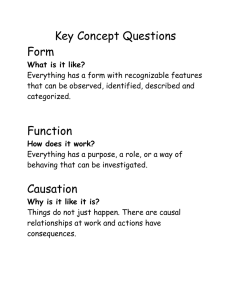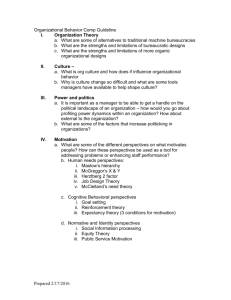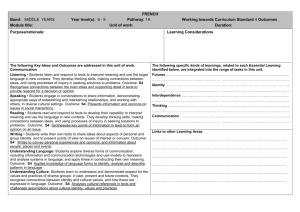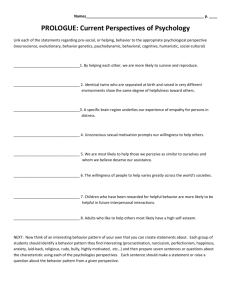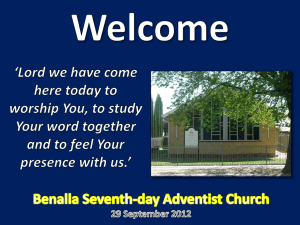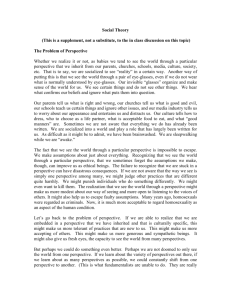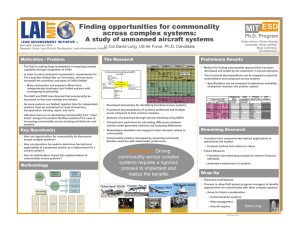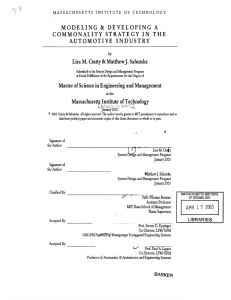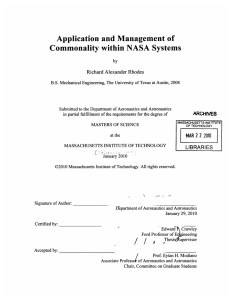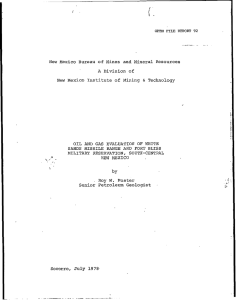Christian Studies in the Real World
advertisement
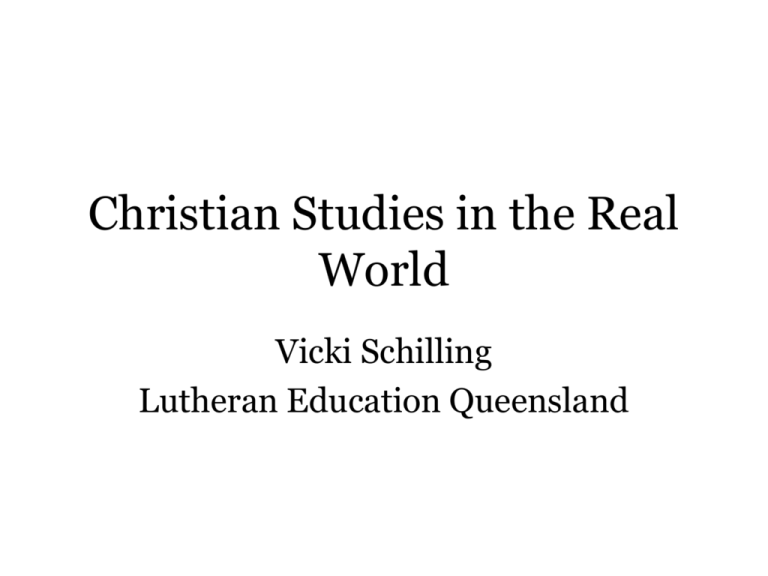
Christian Studies in the Real World Vicki Schilling Lutheran Education Queensland The challenge of engaging students Student engagement is the core of learning in the 3rd millennium. Townsend & Otero, 1999 To be engaging, teaching must be relevant. To be relevant, it must be related to the context in which students live. Relevant contexts include: • Things in students’ own experience • Problems they know and care about (in their community and wider world) • Personal interest topics Learning must • be relevant • be purposeful • broaden and deepen students’ understanding of the world • be active, interactive and collaborative • help students make connections • have the potential for genuine inquiry • involve students in authentic decision making and selfdirection • have positive social aspects • build student satisfaction, mastery and growth • deal with multiple perspectives simultaneously and encourage students’ sensitivity to these • cause students to reflect and take action Globally significant topics are those that: • have significance and meaning for all students, regardless of their backgrounds or beliefs • promote awareness of the human condition and understanding of the commonality of human experience, expression and needs • Embed Christian Studies content/concepts in meaningful, real-life contexts Signposts for global significance Does my unit: 1. open students’ eyes to the wider (and inner) world, developing knowledge, dispositions and skills to interact sensitively, empathetically and competently with others? 2. begin by exploring this common ground collaboratively, from the multiple perspectives of students’ experiences and backgrounds? 3. place learning in a meaningful context by beginning with students’ own understanding and experience? 4. clearly have value beyond the classroom? 5. use facts and content knowledge to illuminate broader concepts and ideas? 6. require student ‘uncoverage’ of appropriately complex and abstract ideas and concepts? 7. have an authentic purpose and outcome? 8. lead to action as a response to learning? What How The ‘what’ • Creating close connections between curriculum content and real life contexts of relevance to students • Use current issues and a wide range of sources and resources • Actively listen to students and build upon their questions and interests The ‘how’ • Develop an inclusive classroom atmosphere and allow for all to participate • Incorporate student-centred learning approaches • Maximize opportunities for experiential (concrete) learning • Plan for cooperative learning and interaction • Explicitly encourage and enable the consideration of multiple perspectives – explicitly teach skills in thinking critically, creatively, empathically, and responding sensitively and clearly • Actively encourage action as a response to learning • Consider religion neutral exercises – active experiences designed to make connections to an aspect of religious experience, practice or spirituality - these exercises help students understand the underlying meaning of the practices or experiences Some starting points • Universal commonality • An issue/topic of relevance • Popular culture and media • Global perspectives Your turn… • Select one of the options of Christian Studies topics given. • With a partner (or small group) brainstorm ways of contextualising this concept in order to be globally significant. • Refer to the question frame to guide your discussion. Relevant How is this unit embedded in the world of students’ lives? How is this topic relevant to all students? In what ways could you incorporate students’ questions? Engaging How might you get your students emotionally engaged? What real-world experiences (and resources) could you plan for? What opportunities are there for real collaboration and interaction? Connected How might you make use of students’ prior understandings and experiences? What different perspectives may come to light and how would you accommodate them? What perspectives would you need to share? How can you make use of realworld experiences, people and resources? Challenging Does the unit offer opportunities for genuine and deep inquiry? Do students have real opportunity for decision making and selfdirection within the unit? Will this unit meaningfully build upon students’ understanding and growth as a learner? Significant How might this unit illuminate broader understandings about the commonality of human experience? What opportunities could be incorporated that build your students’ understandings of people, places and lives beyond their own? Are there inviting opportunities for students to take some kind of action as a response to their learning? Useful resources • TEAR foundation (www.tear.org.au) • Curriculum Corporation Global Education website (http://www.globaleducation.edna.edu.au /globaled/page1.html) • Global Pespectives and associated books • Global Learning Centre (http://www.uq.net.au/~zzglcent/) • Aid Organisations and NGOs • The Global Classroom (Townsend & Otero, 1999) Students each bring their unique worldview shaped by their experience of life and prior learning. The pedagogy of Christian Studies must open doors that connect the content of the framework with the learner’s world – both the inner life and perceptions of the external world. If learning is to be personally meaningful it is imperative that students own the journey of discovery, that they can ask their questions, that they can articulate their growing understanding and that they are free to choose how they will respond to the ideas and concepts they encounter. Students and teachers acknowledge, respect and interact with the multiple journeys of discovery present in the learning environment. Students are challenged to see themselves as members of various communities – classroom, family, church, local, global – from whom they can learn and draw inspiration and to whom they can contribute and make a difference. For me, one of the basic and fundamental purposes of education and educational institutions in the 21st century is the building of a ‘good society’ through the difficult process of transforming the ‘human race’ into a ‘human family’… Our task as educators is to guide them beyond the barriers of culture, across the shores of tradition, through the fears of the present, to the ‘good society’ and the family that embraces all humanity. If there is any community of people and institutions that will prepare the next generation for 21st century citizenship, it is none other than the teachers and our educational institutions. Dr. Ishmael Noko, Lutheran World Federation, 2004
